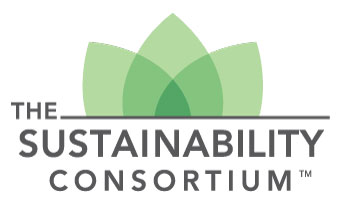TSC 100 Day Assessment and Plan
The first 100 plus days as the Executive Director of “The Sustainability Consortium” (TSC) have been both insightful and inspiring. I feel privileged to lead an organization with such potential to drive beneficial change globally. Participating in and observing TSC stakeholders groups, I confirmed my decision to be part of an organization working to enable environmental
and social actions for more sustainable products and services.
In my first official communication to the membership, my intention is to:
- Provide a brief 100-day assessment of TSC.
- Highlight recent major accomplishments.
- Identify opportunities to maintain momentum and plan for success.
As we move from our Startup phase to Delivery, Growth and Internationalization (Phase II), more of our attention and resources will be focused on the science and data to allow decisions and choices about consumer products and services. The foundation is being laid for a successful transition to Sustainable Growth and Delivery (Phase III) within the next 24 months. With that road map in mind, the 100-day assessment of governance, strategy, member satisfaction, finance, and research-technical work yielded the following activities and accomplishments:
- Completed seven product-category (Full, Level 2) Lifecycle Assessments
and Product Category Rules for independent panel review and public comment. - Began work to create 100 Level 1 Hot Spot and Indicator Analyses by the
end of the calendar year. - Working with the largest retailers in the world to develop buyer tools for
product categories. - Put an “input/output” environmental impact model up on our website,
in support of open source and collaboration. - Visited more than 10 Universities in the last three months and developed strategic alliances.
- Identified a strategic academic partner in the Netherlands to serve as a TSC
base for operations. - Began to establish a strong presence in the European Union for TSC growth. Before the end of the year we expect to expand our reach into Asia and Latin America.
- Added the Paper, Packaging and Toy Sectors to the already existing list of
Food, Beverage and Agriculture, Home and Personal Care and Electronics
Sector Working Groups. - Engaged in collaborative discussions with the Apparel Sector Coalition
to explore a formal partnership. - Selected and have begun procurement of IT platform to display all
research and analyses. - Built up a total cash reserve and have begun detailed financial reporting
to the Board. - Assessed all the staff and research capabilities and began implementing
a reorganization. - Voted three new members onto the Board of Directors including two
NGOs and a European Academic Director. - Completed a short-term strategic plan for Phase II with staff and the Board.
Against this backdrop of rapid growth and ongoing success, a thorough 100-day assessment revealed opportunities to continue TSC’s momentum:
Growth and Internationalization
- 1. Engage our Board members, membership and key stakeholders in long-term strategic planning for the next level of success, with actionable targets and measures.
- 2. Increase the level of engagement and involvement of other stakeholders through the creation of a Multi-Stakeholder Forum, to include representation from NGOs, government, business and academia.
- 3. Consider TSC working group expansion to include additional representation from NGOs, Academia and Business, focusing first on Europe and then Asia and Latin America.
- 4. Recruit international universities and research institutions for long term strategic alliances.
- 5. Expand our membership to include a diverse set of worldwide retailers and leadership companies.
Research-Based Information and Tools
- 1. Create and populate a world-class knowledge base for our Sustainability Measurement and Reporting System (SMRS).
- 2. Complete the purchase of an IT platform for model inputs, outputs and data sharing among TSC members.
- 3. Begin negotiations on a partnership with database owners to ensure continued high quality data collection, management and quality.
- 4. Continue the Level 1 analysis for revealing hot spots and indicators for high-level decision making at the Supply Chain/Business to Business level.
- 5. Inform SMRS design based on outputs of Level 1 and Level 2 research.
- 6. Pilot informed consumer choice research and retail level projects.
- 7. Work with the broader worldwide LCA community to create a long-term open source platform for sharing and improving LCA data over time.
- 8. Employ crowd-sourcing frameworks for promoting real-time collaborative design and sustainable product and service innovations.
- 9. Explore benchmarking and collaboration with existing worldwide organizations to expedite delivery for LCA mainstreaming and reduce duplication of efforts and analyses.
- 10. Provide a trustworthy framework for encouraging and enabling greater sharing of common data among companies and industry sectors to gain greater supply and value chain efficiencies.
Conclusion
The Sustainability Consortium collaborates to design and implement transparent, science-based measurement and reporting for producers and users of consumer products and services. TSC has built a powerful organization that includes many of the largest companies in the world and spans multiple sectors. I’m very pleased to be associated with TSC staff and members, where we have this unique opportunity to enable better choices for a more sustainable world.
We are all cognizant of the daunting and exciting challenge that has been laid before us. No industry sector, no individual company or group of companies, no government entity and no civil society organization can do this alone. There is no better time and no better moment if we are going to build a better world. Let’s Act Now and Let’s Act Together!


